How to set achievable career goals
We all have career ambitions but not all of us write down the necessary steps that we need to take in order to achieve them. Whether you’re studying, have graduated or currently working, it’s important to set career goals. They encourage you to take control of your career path, gives you direction and keeps you on track.
A career goal is a statement that defines what you want to accomplish in the course of your career. You will need to reflect on what your interests and strengths are and the knowledge and skills you need to develop. Achieving each career goal will take time, energy and commitment. Thinking about why your goal is important will keep you motivated.
In this blog, we will explain the steps on how to set achievable career goals and provide a list of career goal examples.
STEPS TO WRITING ACHIEVABLE CAREER GOALS
1. Self–reflection
Reflect on your interests, strengths and ideal work environment and then research industries and roles that align with them. You could complete an online career test, speak with a careers advisor or a friend to help. Write down as many or as few jobs you like.
2. Compare options
Now that you have a list of potential options, ask yourself:
- Which career will best meet my professional and personal ambitions?
- Which career best matches my skills, interests and values?
- Which role will be in high demand by employers in the future?
- Which role reflects my ideal work environment?
- In which career can I receive my desired salary level and work-life balance?
- Which career can I picture staying in the long-term?
Select around 2-3 options that best fit your criteria.
3. List the benefits and challenges
For the 2-3 options you’ve selected, write down the benefits and challenges (pros and cons) for each. Below are 2 examples.
If you want to become an engineer, the benefits could be:
- Pursuing a field you’re passionate about.
- Getting a job that’s in high demand and
- Higher earning potential.
The challenges could be:
- The long duration of studying a degree.
- Cost of training and
- Lack of experience.
If you want to start your own e-commerce business, the benefits could be:
- Selling a product or service you’re passionate about.
- Developing your business skills and
- Having more control over your work hours.
The challenges could be:
- Lack of experience in the digital space.
- Financial cost and risk and
- Lack of resources.
Choose one career that offers the greatest benefits and aligns with the challenges that you are capable of overcoming.
4. Set a long-term goal and short-term goals
Once you’ve decided on your career option, it’s time to write long-term and short-term goals. A long-term goal generally spans 5-10 years (depending on the industry and role) and requires significant time and effort to achieve. Short-term goals are a series of smaller steps that will help you achieve your long-term goal. You can use the S.M.A.R.T method to help you write achievable career goals.
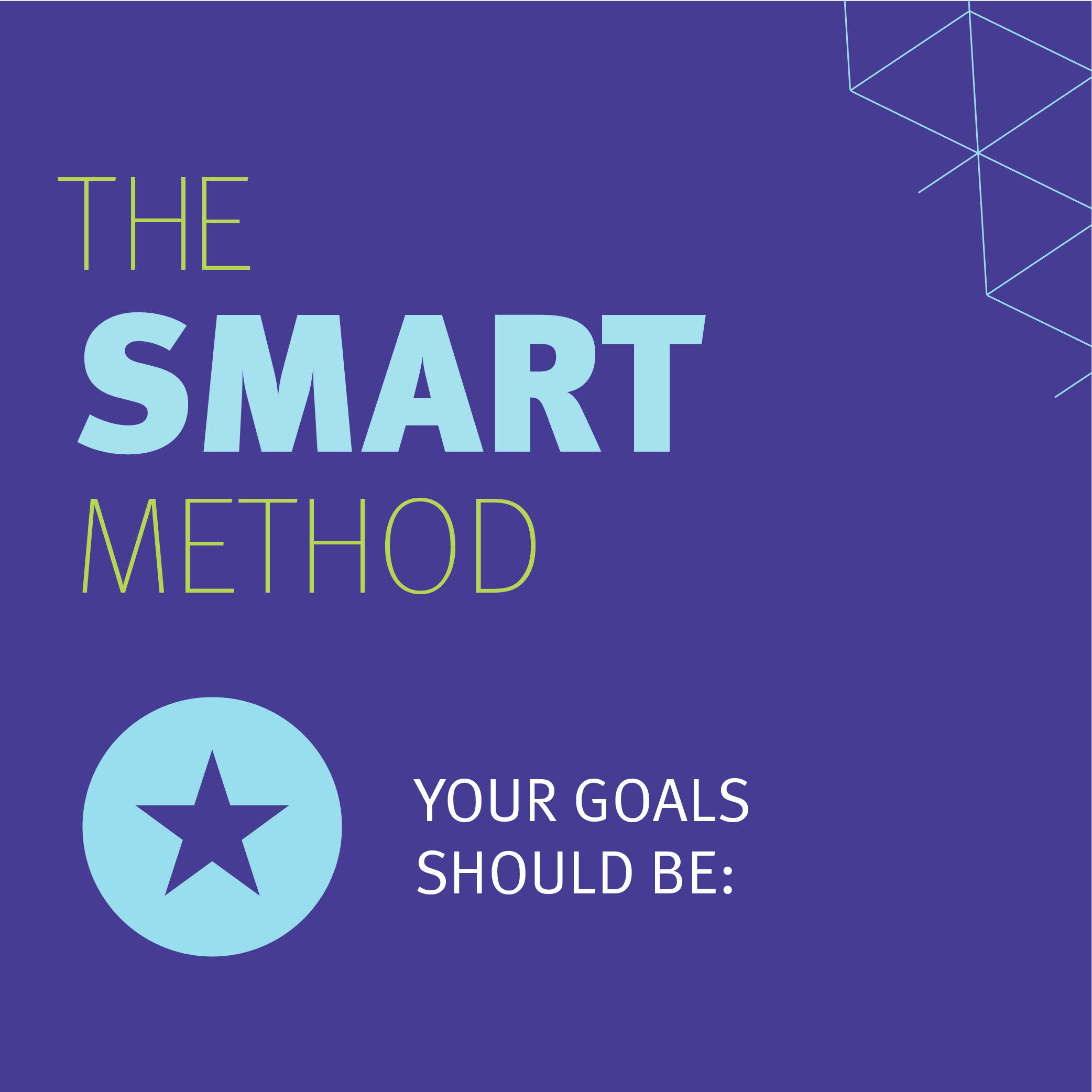
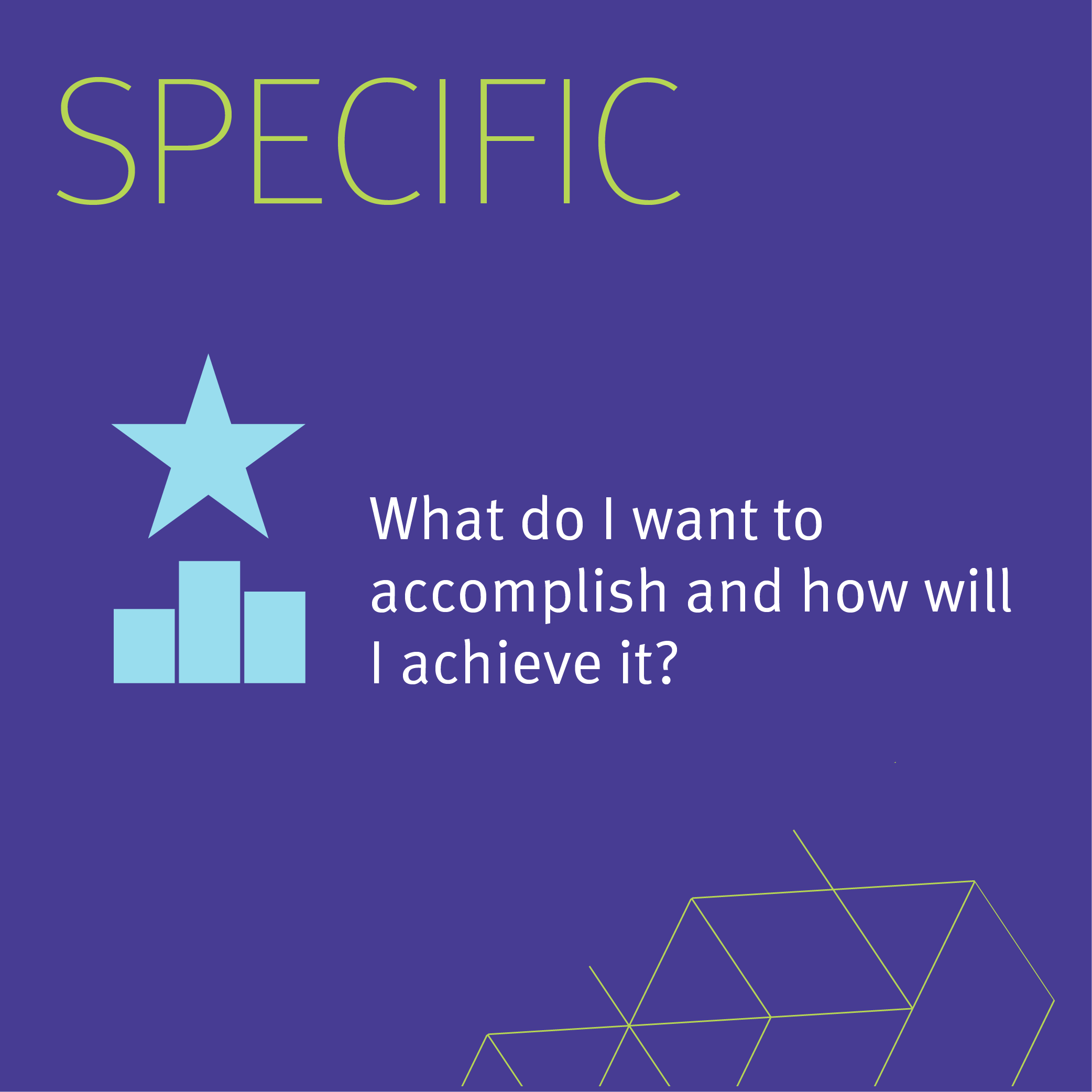
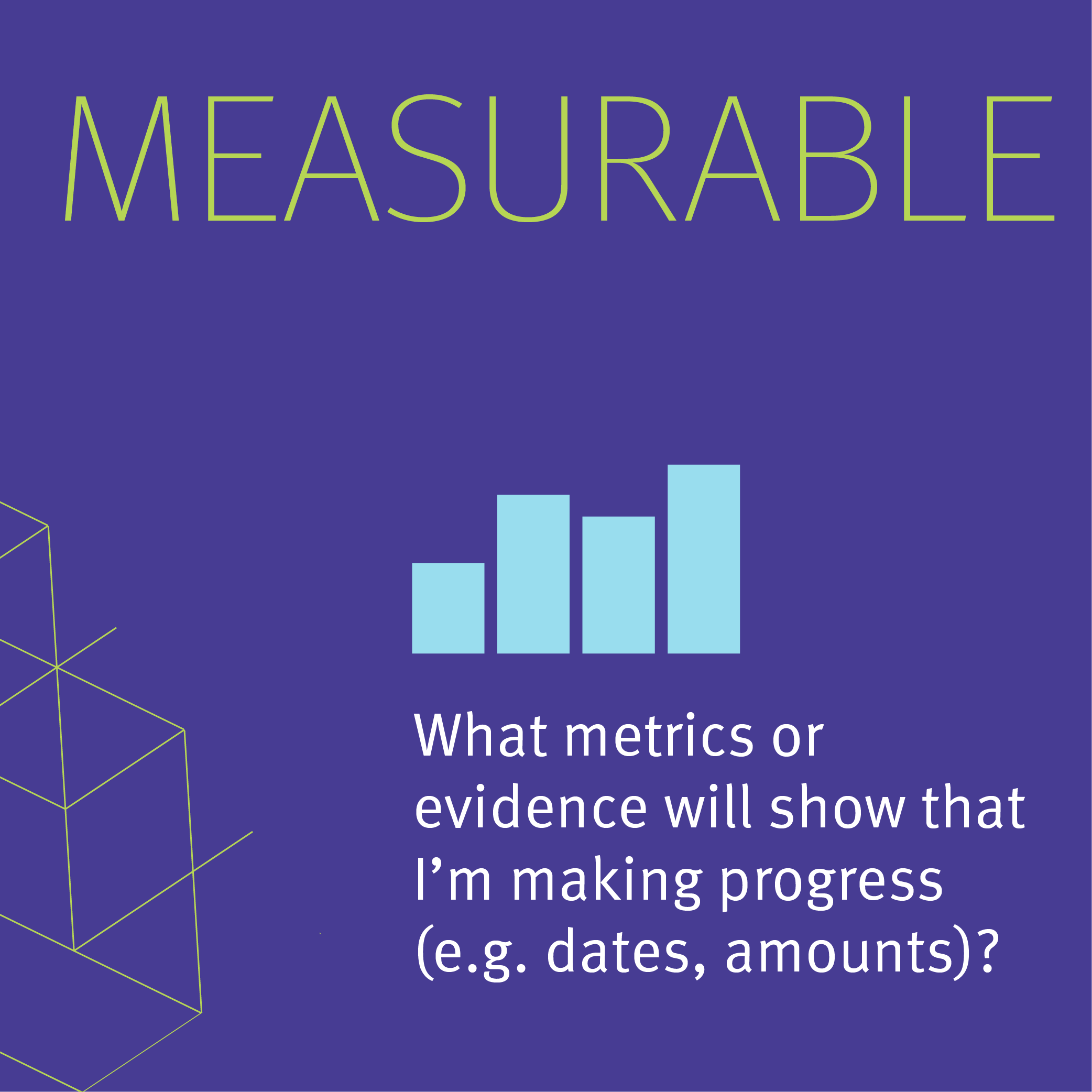

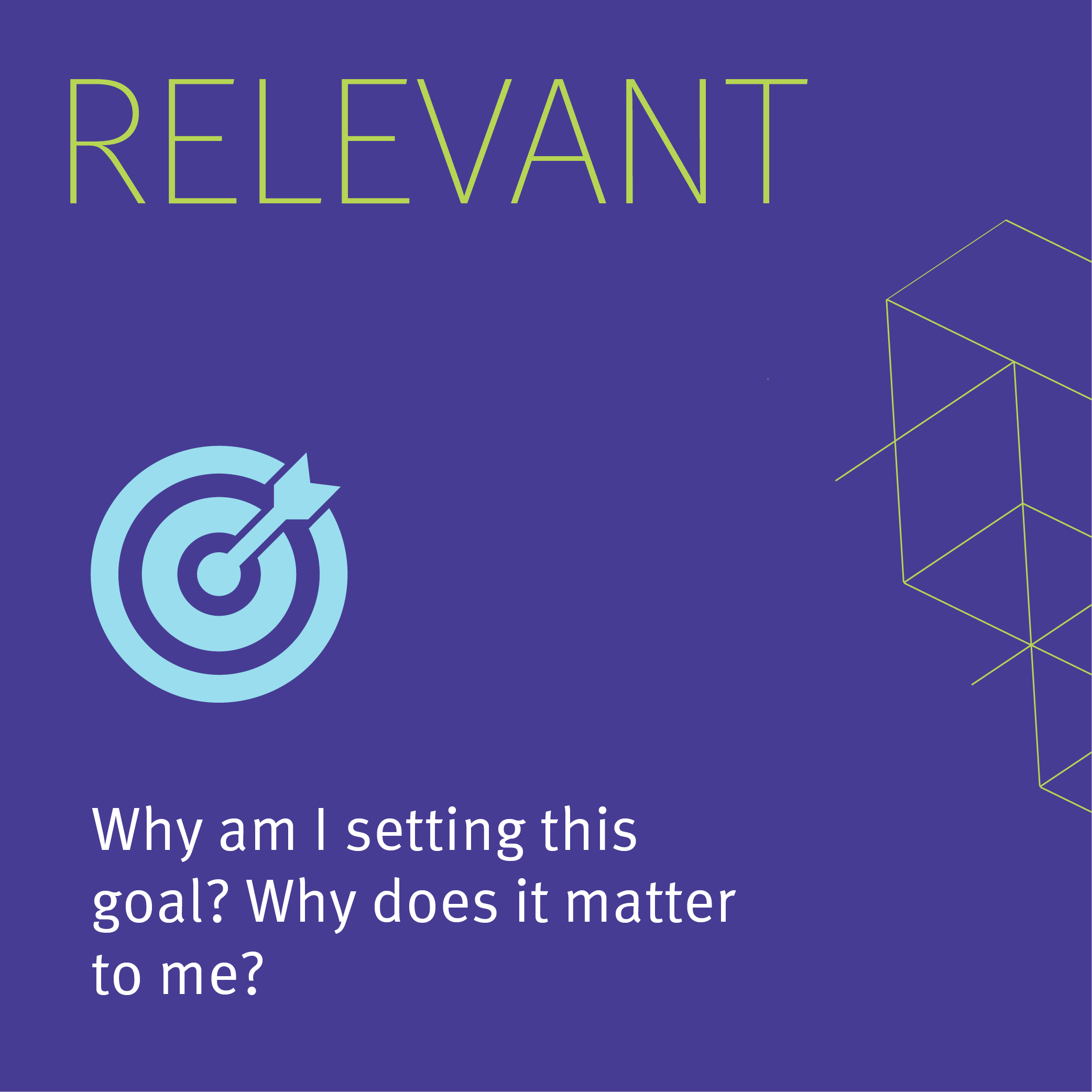
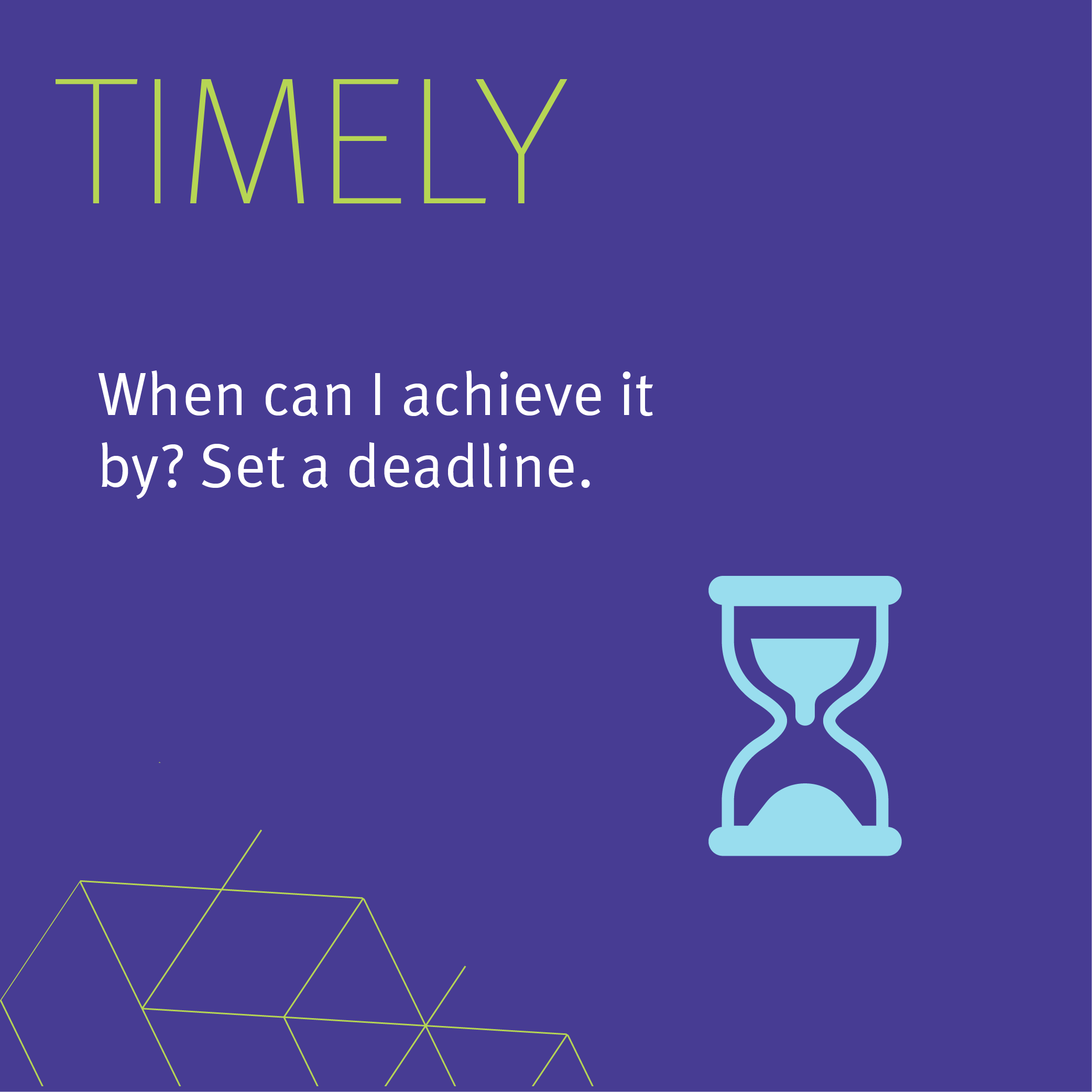
If you are a visual learner, you can draw a roadmap or timeline that outlines each step and the skills you need to achieve each one.
Below are 2 examples of a long-term goal and the possible short-term goals to achieve it.
EXAMPLE ONE
Long term goal:
- Become a project lead within 10 years with at least 2 people reporting to me.
Short term goals:
- 3 months: Find a mentor who has experience in project management and schedule monthly feedback sessions.
- 6 months: Take on new responsibilities within my team and lead 1 new key project.
- 1 year: Attend 2 industry events and connect with at least 5 industry professionals.
- 18 months: Complete a certification in managerial and leadership skills.
- 5 years: Achieve a promotion with 1 person reporting to me.
- 10 years: Become a project leader of larger-scale projects with at least 2 people reporting to me.
EXAMPLE TWO
Long term goal:
- Within 5 years, I want to transition into a new industry.
Short term goals:
- 2 months: Complete a career test and create a list of jobs that fit my interests, strengths and personality.
- 6 months: Research my industry choice and job requirements.
- 1 year: Attend 2 industry or networking events and join 2 groups on LinkedIn to get more information.
- 18 months: Apply and enrol into a relevant degree or course.
- 2 years: Apply for entry-level roles to build experience.
- 3 years: Find a mentor who has industry experience and schedule monthly feedback sessions.
- 5 years: Achieve a promotion.
By breaking your goals into simple steps that are realistic will help you feel less overwhelmed.
5. Be flexible and measure your progress
Career goals are rarely straightforward. Things can change (e.g. company restructurings, economic factors). Review your goals regularly to ensure they are still achievable and realistic. If they’re not, then revise them accordingly. Identify any areas where you are falling behind and allocate time for improvement.
Track your progress and hold yourself accountable. You can ask a career advisor, mentor or colleague to help keep you on track. Remember to celebrate when you do achieve your goals.
OTHER USEFUL RESOURCES
Seek Career Planner – an easy-to-follow guide to setting career goals and identifying next steps.
Job Jumpstart – practical tips and activities for young people starting to think about their career direction.
Prosple Career Plan - career planning and goal setting help.
CAREER GOAL EXAMPLES
To help you start writing your career development plan, here are 8 examples of career goals and advice on how to achieve them.
1. Earn a certification
Earning a certification may equip you with the knowledge and skills to help you earn a promotion. There are certifications that are affordable or free and offer hybrid or online options to fit within your busy schedule (e.g. Google, Hubspot). See if your company has a budget set aside for training and professional development.
2. Gain an entry-level role or internship at a company I admire
Have a look at the company’s careers section on their website to see if they offer internship opportunities or suitable roles. Research the company’s mission, values, achievements and the types of technical and soft skills they require to help you write a job application that will stand out. You can take online courses to build the foundational skills they seek.
3. Make a positive impact
Specify how you want to make a positive impact such as helping the disadvantaged or mentoring youth. You can research non-for-profit organisations, private companies that have a non-profit arm or volunteering programs that you can join.
4. Improve my skill set
Identify skills that are essential for your career goal. You can talk to your manager or team members about ways to resolve your skills gap such as taking on extra responsibilities, completing online courses or joining a mentoring program. For example, to strengthen your communication skills, you can offer to lead the next team meeting or present project results at the next conference.
5. Expand my professional network
Building networks with professionals can help you learn about industry trends, relevant events and job opportunities. They can become your mentors who help you develop the skills required to succeed. Attend industry events, workshops and seminars to meet like-minded people. On LinkedIn, you can reconnect with your alumni network, join online forums and relevant groups. You can also become a member of associations relevant to your industry and attend their events or contribute to their projects.
6. Secure a more senior position / promotion
Research the position’s main responsibilities to see if it aligns with your priorities. Learn from a mentor or people in those roles and find out what skills and experience they needed to reach their position. Talk to your manager to discuss your next step and what additional responsibilities you can take on to gain the experience needed.
If you want to be in a leadership position, you can research leadership qualities such as communication and emotional intelligence and seek out projects or tasks that will help you develop them.
7. Enter a new industry
Research the qualifications, skills and experience to be successful in the field. Reach out to industry professionals on LinkedIn or join industry events and online forums to gain more knowledge. Look for freelance, entry-level or internship and volunteering opportunities to help you get a start in the new field.
8. Start my own business
This can be a long-term goal that you feel ready to start after you have gained enough work experience. You have the benefit of producing a product or service that you’re passionate about, flexibility in the hours you work and developing your entrepreneurial skills and business acumen. Starting a business requires extensive planning and research. Connect with other entrepreneurs to learn from their experience, take relevant courses, read online blogs and listen to podcasts.
Interested in more career advice? Read our Business Career Guide. Learn how our Career Central team can help you advance your career.









